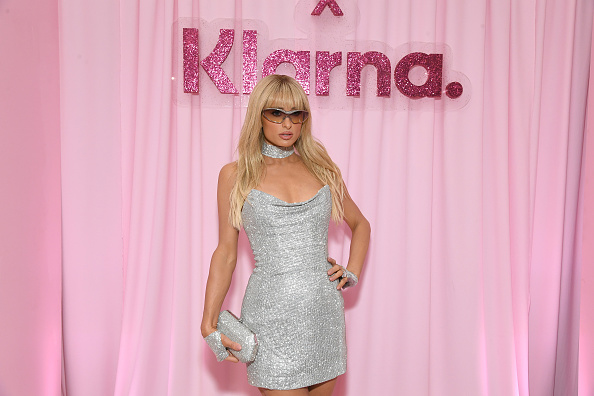Don’t be fooled, buy now pay later firms aren’t your BFF, they just want your money

With millennial pink branding and cutesy messages, firms like Klarna want you to forget they are trying to push you into debt, writes Phoebe Arslanagic-Wakefield
Swedish company Klarna is a bona fide fintech unicorn, valued at $6.7bn with over 150 million active global consumers, 18 million of whom are in the UK. Klarna is a buy-now-pay-later (BNPL) lender, offering a type of consumer credit that allows you to borrow money to make a small purchase, and then spread out the cost by paying the loan back in instalments that are often interest free.
With a distinctive millennial pink brand, Klarna targets itself squarely at a younger customer. It’s cultivated an inclusive brand ethos, using a saccharine tone that encourages customers to “shop like a queen”, while reminding them to consider the environmental sustainability of their purchasing habits. It’s even launched tongue-in-cheek campaigns with billboards proclaiming and then de-bunking statements like “Millennials are useless with money” and “pink is for girls”. This has come alongside tactical partnerships with brands that have a younger customer base, including ASOS and Missguided.
Klarna’s strategy, and that of its similarly youth-focused competitors like Clearpay, has worked. Polling carried out by Savanta in 2022 shows that 42 per cent of 18 to 24-year-olds and 56 per cent of 25 to 34-year-olds have used BNPL, demonstrating the incredible extent to which these lenders have ingratiated themselves into consumer habits.
“Klarna is really my best friend. Her and I should’ve crossed paths years ago,” a young woman tweeted earlier this month. “Hiiiii bestie!” Klarna cheerfully replied. The young woman responded, “Hi bestie, thanks for making my life easier.”
This exchange encapsulates the new, disagreeably friendly face of debt that sees companies like PayPal – which has enthusiastically leapt into the BNPL market – barrage my inbox with breathless emails telling me that I am eligible for their pay later scheme (lucky me!), which apparently offers a great way for me to “take control of my budget”.
But rather than a benign alternative to traditional forms of credit, the effect of BNPL is to encourage consumers to regularly spend just a little bit beyond their means, a predatory attempt to create a pay-later culture that sees the budgets of those who can ill-afford it permanently stretched. In 2020, it was revealed that 30,000 people have damaged their credit scores by missing Klarna payments and the company’s own promotional material for retailers proudly stated that customers spent an average of 55 per cent more when able to spread payments over multiple instalments.
Worryingly, with a proliferation of BNPL lenders, consumers can potentially quickly build up high levels of indebtedness by taking out loans with multiple companies. The Financial Conduct Authority has published a report pointing this out, with one BNPL user quoted as saying: “If I’m at my limit with Klarna, I’ll look and see if the shop offers another type.”
Now, the government is launching a consultation as part of a long-awaited move to increase regulation of BNPL companies and better protect consumers. This comes as Klarna introduces late fees for the first time from March 16 onwards. Klarna UK boss Alex Marsh claimed the change was altruistic. He wrote in this newspaper that not having late fees was “not in the best interest of our customers” in the company’s quest to build “the world’s most responsible credit business”.
There’s a cloud of economic drizzle over the UK, we’re being crunched by the cost-of-living crisis, and no one under the age of 35 without a criminal enterprise or wealthy and obliging parents is likely to be able to buy a house any time soon. Do not judge the harried customer who decides to spread out the cost of a new mascara over a few weeks. Instead, be gladdened that the government has realised that what Klarna and its ilk peddle are simply unstructured credit products in need of tougher regulation – good luck besties!
Clarification: A previous version of this article said Klarna had a valuation of $45.6bn. It has a valuation of $6.7bn.